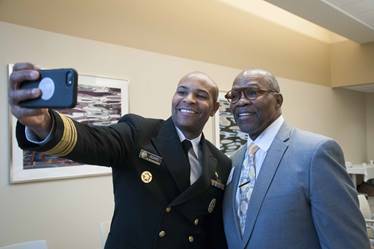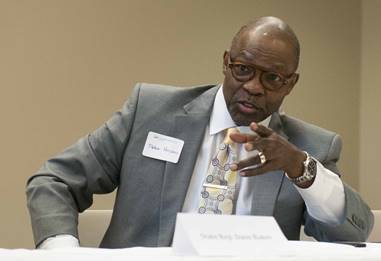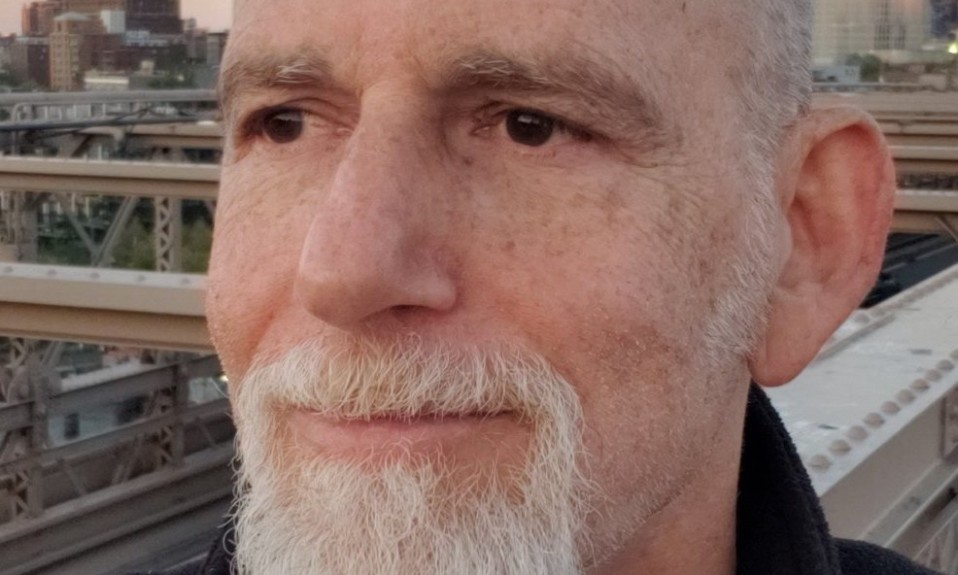Since 1976, his Turning Point organization has been blazing a trail in making treatment more equitable
By Jason Langendorf
Peter Hayden, PhD, is the co-founder of one of the most influential substance use disorder treatment programs in the country. In 2015, his Minneapolis-based Turning Point facility was identified by the University of Minnesota for its approach to culturally specific treatment for Black patients as an industry-best practice, and in 2021 it received the inaugural National Association of Addiction Treatment Providers (NAATP) Diversity, Inclusivity and Racial Equity Award.
Hayden himself has been celebrated with the Community Legends award from General Mills and the America Honors Recovery award from Johnson Institute. Oh, and that honor Turning Point received from the NAATP last year? After its issuance, the award was promptly named after Hayden. He is, without a doubt, a seminal figure in the addiction and treatment space.
But Hayden also isn’t so different from many of the patients who have walked through the doors of Turning Point. As a young Black man who returned to Minneapolis after serving in Vietnam, Hayden soon realized that he had no home, little direction and a drinking problem that increasingly defined his circumstances. A car accident in front of the police station and the alcohol detected on Hayden’s breath made for a short walk to lockup. “This is how God works in my life,” Hayden recalls.
“I never imagined earning a PhD or creating something like Turning Point that would endure so long and impact so many people.”
—Peter Hayden
After pre-sentencing, Hayden was directed to treatment, and because he was ready to change, he says, the program worked. He embraced the 12 steps, but it wasn’t lost on him that he was always the only person of color in the room. Hayden filed that away, soon learned that the GI Bill would pay for his education, and went on to earn his undergraduate degree from Minnesota, his master’s in public administration (Capella University) and his doctorate in psychology (Richardson University). He has been in recovery ever since.
That Hayden is a distinguished example of representation in his field—a sector that only recently has begun to address its awful track record regarding diversity—should go without saying. And yet it deserves special attention. In a space with life-and-death stakes, Hayden’s presence alone serves as a lighthouse for many Black patients with substance use disorder (SUD) who are searching for a port in the storm.
A More Equitable Approach to Treatment
Representation, for all its importance, is only the first stage toward building a more equitable, effective recovery system for all. As the opioid epidemic continues to take lives at an ever-increasing rate, people of color—and those in the Black community in particular—are bearing an alarmingly greater burden.
According to Pew Research, as recently as 2015, Black men were less likely than white men to die of a drug overdose. But since then, the rate of overdose deaths among Black men has soared 213%, while the rise among men in other demographics has been far lower.
A variety of social and systemic factors have contributed to this disparity, including some that are straightforward—lack of insurance or housing instability and lower employment, for instance—as well as others that aren’t so easily explained to the public or remedied with policy quick fixes.
Black patients are 77% less likely to be prescribed buprenorphine than other patients, and more likely to receive methadone treatment. But because methadone generally requires daily visits to a clinic, logistics such as transportation and scheduling around work or child-care responsibilities can suddenly become insurmountable obstacles. Recent incarceration is another factor, UCLA addiction researcher Joseph Friedman recently told The Guardian, “due to the over-policing and over-incarceration of Black and Indigenous communities.” People just released from jail have a low tolerance for drugs and a high risk of relapse because of a lack of post-carceral support.
Hayden points to George Floyd, a former patient at Turning Point. He suggests that Floyd, a Black man who was infamously killed by a white police officer in May 2020 on the streets of Minneapolis during an arrest that was attributed in part to Floyd’s drug use, faced a more pitched road to recovery.
Says Andrew Williams, director of diversity, equity and inclusion at Hazelden Betty Ford Foundation: “For many reasons, including policies that have criminalized addiction more than providing help for it, BIPOC communities are disproportionately represented among those experiencing both substance use disorder and overdose deaths, and yet they have less resources and access to care.“
Hayden points to George Floyd, a former patient at Turning Point. He suggests that Floyd, a Black man who was infamously killed by a white police officer in May 2020 on the streets of Minneapolis during an arrest that was attributed in part to Floyd’s drug use, faced a more pitched road to recovery because of these factors. If not for biases inherent in these series of systems, perhaps Floyd’s fate could have been different.
“George—I can’t say he would be with us today,” Hayden says. “But I can say he would not have been in that store, somebody passing him some kind of drugs or whatever the case. You can’t just say it’s a lifelong disease. You have to prepare your organizations to meet those people’s needs. Forever.”
Peter Hayden’s Good Works
To that end, Hayden has built a community-based facility that serves all people, but with a focus on the specific needs of Black patients—including SUD treatment, housing, community services and job training. Turning Point works closely with Hazelden (also headquartered in Minneapolis) to meet those needs and develop new ways to help override racist stigmas and biases as well as, Williams says, fear and mistrust of the health care system among Black people and others of color.

“Programs like Turning Point, which provide a culturally attentive approach to treatment and recovery in the African American community, are transformative because they diminish these barriers and leverage their cultural knowledge and groundings to advance hope and healing—both in the direct care they provide and the education they share with others,” Williams says.
Having served more than 24,000 people since opening its doors in 1976, Turning Point has set the bar for future culturally specific treatment programs and services. And it began with Hayden, who had to help himself before he was able to help others. “I never imagined earning a PhD or creating something like Turning Point that would endure so long and impact so many people,” he says. But at the annual NAATP national conference in San Diego in May, this year’s Diversity, Inclusivity and Racial Equity Award will bear his name.
“Dr. Hayden’s leadership and community-centric approach have had a monumental impact not only on Turning Point’s programming and clients,” said NAATP CEO Marvin Ventrell, “but also on the professionals throughout the country who see him as a leader and inspiration for the work they do.”














